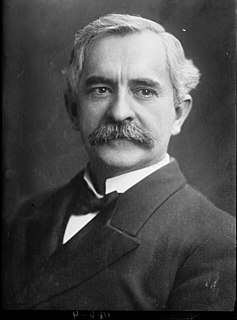A Quote by Fulton J. Sheen
Before the sin, Satan assures us that it is of no consequence; after the sin, he persuades us that it is unforgivable.
Quote Topics
Related Quotes
Every person in the world is by nature a slave to sin. The world, by nature, is held in sin's grip. What a shock to our complacency- that everything of us by nature belongs to sin. Our silences belong to sin, our omissions belong to sin, our talents belong to sin, our actions belong to sin. Every facet of our personalities belong to sin; it own us and dominates us. We are its servants.
Our inhuman enemy inspires the thought that God loves mankind, and that He quickly forgives this sin. But when we observe the guile of demons, then we see that after the commission of the sin, they suggest to us that God is a righteous and implacable Judge. The first they say in order to lead us to sin, the second, in order to weigh us down in despair.
We've fallen for the devil's lie. His most basic strategy, the same one he employed with Adam and Eve, is to make us believe that sin brings fulfillment. However, in reality, sin robs us of fulfillment. Sin doesn't make life interesting; it makes life empty. Sin doesn't create adventure; it blunts it. Sin doesn't expand life; it shrinks it. Sin's emptiness inevitably leads to boredom. When there's fulfillment, when there's beauty, when we see God as he truly is-an endless reservoir of fascination-boredom becomes impossible.
Repentance out of mere fear is really sorrow for the consequences of sin, sorrow over the danger of sin — it bends the will away from sin, but the heart still clings. But repentance out of conviction over mercy is really sorrow over sin, sorrow over the grievousness of sin — it melts the heart away from sin. It makes the sin itself disgusting to us, so it loses its attractive power over us. We say, ‘this disgusting thing is an affront to the one who died for me. I’m continuing to stab him with it!’
Devil does not bring sinners to Hell with their eyes open: he first blinds them with the malice of their own sins. He thus leads them to eternal perdition. Before we fall into sin, the enemy labours to blind us, that we may not see the evil we do, and the ruin we bring upon ourselves by offending God. After we commit sin, he seeks to make us dumb, that, through shame, we may conceal our guilt in confession.





































